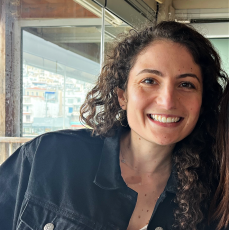There is much to recount about the fora peace workshops CPI conducted last month, so a third blogpost on the subject is necessary. As a refresher, the purpose of fora workshops is to give space for pastoralist communities (in this case the Pokot and IlChamus) to (1) discuss environmental and ecological challenges they face as pastoralists; (2) explore the impacts of climate change on conflict; and (3) brainstorm coping mechanisms and strategic solutions to mitigate and adapt to these realities. After speaking about the first two goals in previous blogs, this one will be dedicated to the third goal.
As described, the IlChamus live close to Lake Baringo, which is a key water source with surrounding pastureland. Despite the flooding of some pasture near the lake, IlChamus herders still benefit from living close to the water and are disincentivized to leave their area. The Pokot villages, on the other hand, range from 15-25km away from the lake. The Pokot villages located closer to the lake are on the “frontlines” and therefore more easily targeted by the IlChamus, while the villages further away, in the “interior,” are the main aggressors when they come to graze near the lake.
 “No man’s land” zoomed out
“No man’s land” zoomed out
Towards the end of the workshops, CPI asked the groups their ideas to collectively benefit from the lake’s water and pasture peacefully. To my pleasant surprise, all four communities (two IlChamus and two Pokot) presented the idea of sharing the resources. I heard the phrase “resource-sharing is possible” at each workshop.
The proposed resource-sharing plan looks like this. Older, mentor-like figures (called “elders”) will monitor herders of the other tribe to disincentivize herders from stirring trouble. For example, Pokot herders from the “interior” (see Tangulbei on the northeast region in the right-side map) travel south towards Lake Baringo. When they reach the border of IlChamus territory, IlChamus elders will record the ID numbers of the Pokot herders as well as the number of cattle they came with. That way, if a raid begins, then the elders will be able to identify exactly who started the conflict, and if they stole cattle from IlChamus herders.
In my opinion, this particular method of resource-sharing is a coping mechanism to adapt to conflict, not a strategic solution to mitigate it. While cross-border movement is major progress towards cooperation, the strict monitoring of herder movement indicates the strong level of mistrust between them without acting to alleviate it.
However, a strategic solution to mitigate conflict would allow both tribes to benefit equally. One example of a strategic solution is that the two tribes commit to graze together peacefully in an area called “no man’s land.” This area, indicated by the red border in the above maps, is called “no man’s land” because neither Pokot nor IlChamus herders currently graze there. They both fear retribution from the other. So, if they agreed to share this area, then the groups would have equal stake in the land and hopefully benefit equally. This could lead to more trust and sustainable peace.
It would be naive to think that the groups will let go of grievances through one coping mechanism or strategic solution—at least in its beginning stages. Developing trust will be a gradual process. However, it speaks volumes that all groups are open to resource-sharing. The need to share pasture and water is becoming inevitable because both are depleting. It is critical in order to avoid violent confrontation, and both tribes know the consequence of continued fighting. CPI will help guide this process as it unfolds.
Posted By Olivia Landau
Posted Aug 12th, 2024


